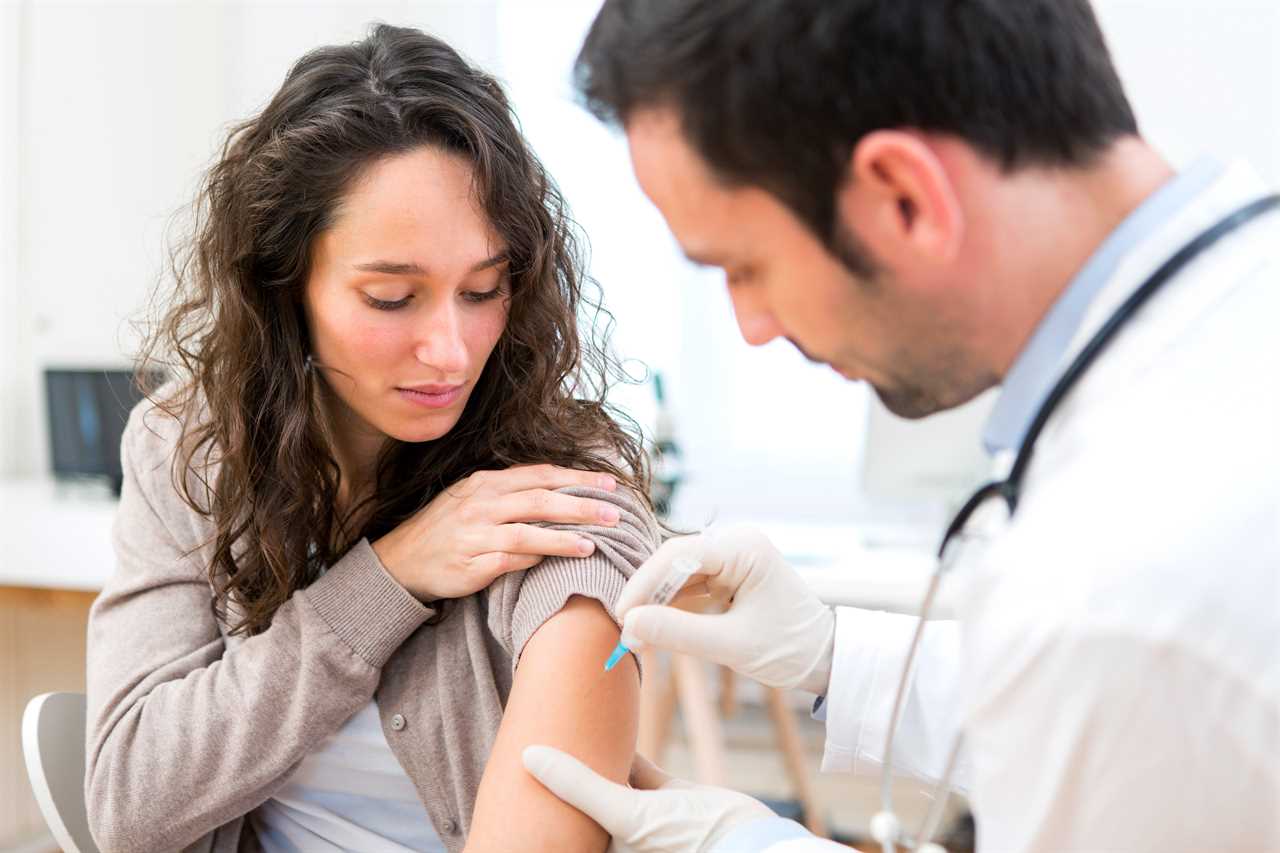YOU may have noticed a subtle difference in your period since getting your Covid vaccine.
Evidence is mounting that you’re not imagining it – the jabs may have altered your normal cycle.

But any changes to periods after a Covid jab are “small” and “quickly reverse”, an expert has said.
Dr Victoria Male, lecturer in reproductive immunology at Imperial College London, said studies so far are “limited but reassuring”.
Any changes that may occur don’t appear to last very long.
In an editorial published in The British Medical Journal, Dr Male wrote: “Changes to the menstrual cycle do occur following vaccination, but they are small compared with natural variation and quickly reverse.”
Importantly, there is no evidence that Covid-19 vaccination affects fertility.
And if you haven’t already had your Covid booster jab, health officials would urge you to do so, as it’s the only protection against the dominant Omicron variant.
Dr Male pointed out that cycles can vary naturally – it’s for this reason that drug regulators can’t be certain that vaccines are to blame.
More than 36,000 women officially reported changes to their periods to the Medicines and Healthcare products Regulatory Agency (MHRA) after having a vaccine in the UK.
The MHRA has said it has not found a clear link between the life-saving Covid jabs and changes in women’s cycles.
What you can expect
Studies looking into the relationship between periods and vaccines have mostly been conducted abroad.
A US study of 4,000 women found that the Covid jab may cause a woman’s period to come later than usual.
The first dose of vaccine was not linked to changes to the timing of a woman’s next period. But after a second vaccine there was an average delay of 0.45 days.
The women most affected were those who received both doses in the same menstrual cycle, who experienced an average delay of more than two days.
Around 10 per cent of them had a change of eight days or more.
However, unlike in the US, women in the UK are unlikely to have had two vaccine doses within the same cycle (one month).
The policy in the UK was to leave eight to 12 weeks between jabs.
The US study also found that cycle lengths returned to normal after a couple of months.
Meanwhile a separate study from Norway asked women about changes to their cycles both before and after vaccine doses.
Some 38 per cent of women reported changes before they had even been vaccinated. Women most commonly reported heavier bleeding compared to their normal.
“The findings from both these studies are reassuring,” Dr Male said.
Immune response
Dr Male has previously said that if vaccines do cause a change in periods, it is likely to be a result of the immune response to vaccination, rather than to a specific vaccine ingredient.
It has been shown previously that menstrual changes may occur due to Covid itself, supporting a link between the immune and reproductive systems.
Dr Male said the MHRA continues to advise that “anyone noticing a change to their periods that persists over several of cycles, or who has any new vaginal bleeding after the menopause” should be treated in the usual way.
There are a number of reasons why your period may change in length, or become heavier, lighter, more painful, stop, or generally become irregular.
Some of these may need medical attention.
Stress is known to impact on a woman’s normal cycle, as well as lack of sleep and energy.
An STI, PCOS, endometriosis, cancer, fibroids, contraception change, weight loss or over exercising can alter periods, too.
Keep an eye on your periods so that if you notice changes without an obvious cause, you can track symptoms and see your doctor if you’re concerned.






